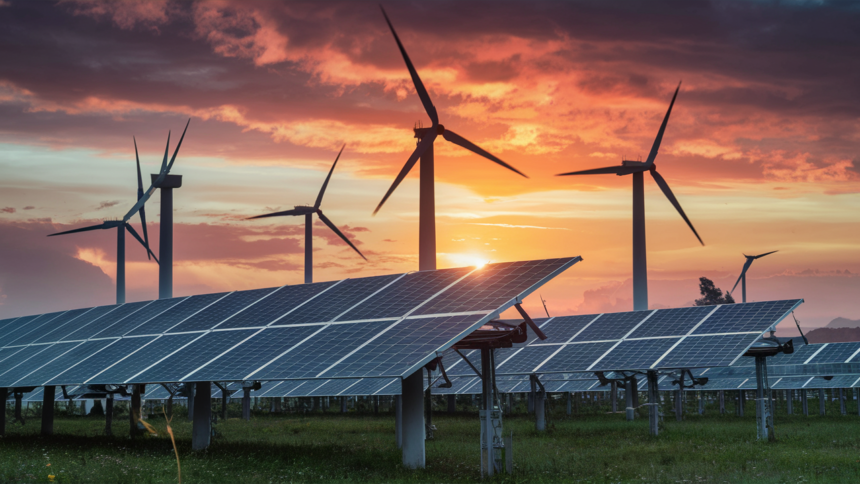The development of Independent Power Producers (IPPs) is crucial for expanding access to electricity and driving economic growth across sub-Saharan Africa. However, numerous barriers hinder the growth of IPPs in the region, particularly in the solar energy sector. By examining successful models from South Africa and Kenya, Nigeria can glean valuable insights into how to overcome these challenges and foster the development of solar IPPs.
Lessons from South Africa and Kenya
- Competitive Tenders: A Proven Approach – The South African Renewable Energy Independent Power Producer Procurement Programme (REIPPPP) has shown that well-designed competitive tenders can achieve superior results compared to other policy instruments. The success of REIPPPP demonstrates the importance of creating tenders that increase competition among bidders and ensure that only capable bidders participate. Nigeria can adopt a similar approach by developing transparent and competitive tender processes for solar IPPs. This would not only attract high-quality developers but also drive down costs, making solar energy more affordable and accessible.
- Policy and Regulatory Environment: A Solid Foundation – Kenya’s advanced policy and regulatory environment has been instrumental in attracting IPP investment. The country’s partial privatization of national utilities, coupled with cost-reflective tariffs, has created a conducive environment for IPPs. Nigeria can learn from Kenya’s experience by implementing policies that encourage private sector participation and establishing an independent regulatory authority to oversee the power sector. This would provide greater transparency, particularly in tariff setting, and ensure a level playing field for all stakeholders.
- Financing and Investment Climate: Addressing Key Challenges – One of the biggest challenges facing IPPs in sub-Saharan Africa is the inadequate investment climate. Limited access to local currency financing and the lack of fiscal policy support, such as tax incentives, are major hurdles for developers. Both South Africa and Kenya have made strides in creating more favourable investment conditions through tax exemptions and other fiscal measures. Nigeria can follow suit by offering tax holidays, import duty exemptions, and guaranteed repatriation of profits for solar IPP projects. Additionally, improving access to local currency financing would reduce the risks associated with currency fluctuations and make investment in solar projects more attractive.
- Grid Infrastructure: Building for the Future -The poor condition of electricity grid infrastructure is a common barrier to the integration of renewable energy across sub-Saharan Africa. In many cases, utilities are unable to handle the intermittent nature of solar power, limiting its share in the energy mix. To overcome this, Nigeria needs to invest in modernizing its grid infrastructure, including the development of advanced dispatch centres that can manage the variability of solar energy. Strengthening the transmission and distribution network is also essential to ensure that solar IPP projects, especially those in remote areas with high solar potential, are financially viable.
- Data-Driven Planning: Laying the Groundwork- Reliable data is critical for effective power sector planning. Kenya’s focus on developing comprehensive master plans, based on least-cost electrification studies and renewable energy potential assessments, has provided a clear roadmap for IPP development. Nigeria can enhance its power sector planning by investing in data collection and analysis, enabling the government to make informed decisions about where and how to deploy solar IPPs. This data-driven approach would also help identify the most promising sites for solar projects and ensure that investments are directed to areas with the greatest impact.
- Addressing Limited Energy Demand: Expanding Market Opportunities – In some African countries, limited energy demand relative to generation capacity has restricted the growth of IPPs. Nigeria can mitigate this issue by promoting regional power trade through initiatives like the West African Power Pool (WAPP), which allows countries to share surplus generation capacity. By participating in regional power markets, Nigeria can expand the market opportunities for its solar IPPs and enhance the overall viability of these projects.
Path Forward for Nigeria’s Solar IPPs
Nigeria stands at a critical juncture in its energy transition journey. By learning from the successes and challenges of South Africa and Kenya, Nigeria can develop a robust framework for solar IPPs that drives investment, fosters innovation, and ultimately provides sustainable energy to millions of people.
To unlock the full potential of solar IPPs, Nigeria must:
- Implement competitive tender processes that attract capable developers and drive down costs.
- Establish a supportive policy and regulatory environment that encourages private sector participation.
- Improve the investment climate by offering fiscal incentives and enhancing access to local currency financing.
- Modernize grid infrastructure to accommodate the integration of solar energy.
- Invest in data-driven power sector planning to guide the strategic deployment of solar IPPs.
- Explore regional power trade opportunities to expand the market for solar energy.
By taking these steps, Nigeria can position itself as a leader in solar energy development, contributing to a brighter, more sustainable future for all.
Author
Engr Bamidele Faparusi
MD/CEO, GreenPower Overseas Limited
Former Commissioner for Infrastructure and Public Utilities, Ekiti State, Nigeria.
Author
Engr Bamidele Faparusi
MD/CEO, GreenPower Overseas Limited
Former Commissioner for Infrastructure and Public Utilities, Ekiti State, Nigeria.



